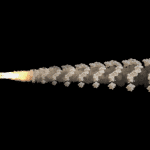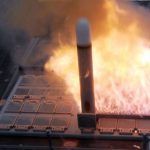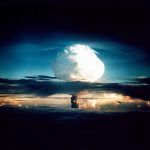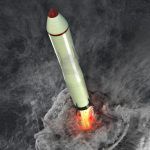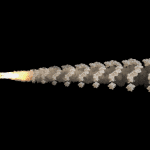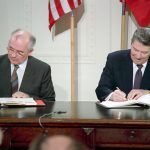Trump and Bolton try to dismantle the INF Treaty
By Elisabeth Eaves | October 22, 2018
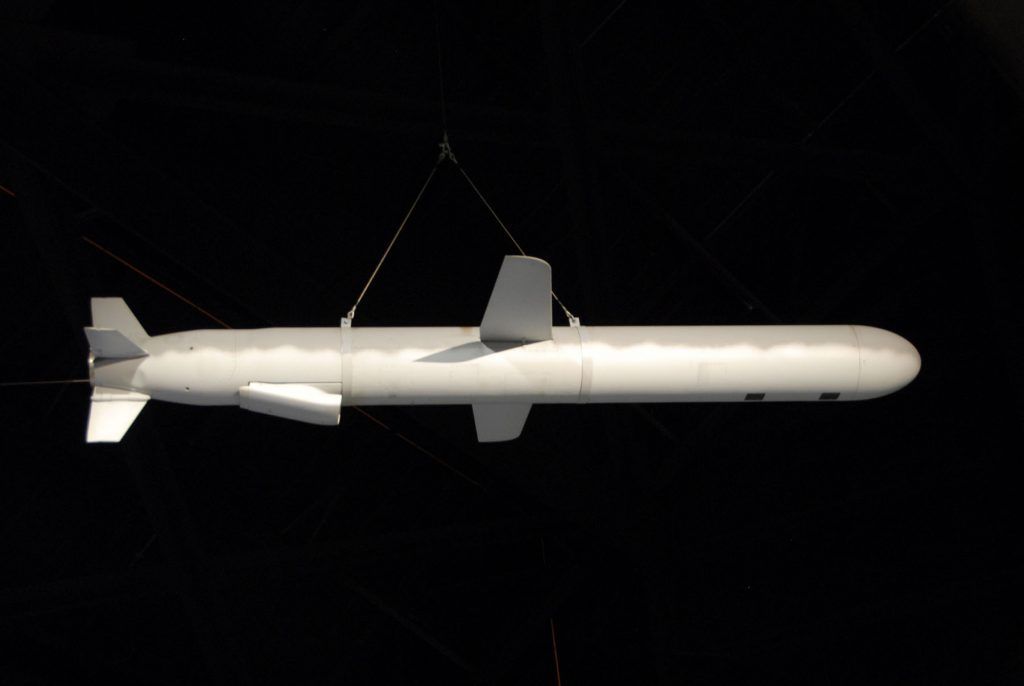 The BGM-109G, a ground-launched cruise missile shown here at the National Museum of the US Air Force, was one of the US weapons banned by the INF. (Photo credit: US Air Force.)
The BGM-109G, a ground-launched cruise missile shown here at the National Museum of the US Air Force, was one of the US weapons banned by the INF. (Photo credit: US Air Force.)
As the name suggests, an intermediate-range nuclear missile is one that goes a medium distance. In weapons speak, that means 500 to 5,500 kilometers, so, for instance, from Russia to Western Europe and vice versa, but not from Russia to Los Angeles. Throughout the 1970s and 1980s, the United States and the Soviet Union built up their intermediate-range nuclear arsenals in Western and Eastern Europe respectively, until the whole landmass bristled with projectiles capable of obliterating entire cities. Finally recognizing that things were getting out of hand, not to mention awfully expensive, US president Ronald Reagan and Soviet leader Mikhail Gobachev signed the Intermediate-Range Nuclear Forces Treaty, or INF, in 1987. It was a major landmark for nuclear nonproliferation; as the Arms Control Association explains, “The treaty marked the first time the superpowers had agreed to reduce their nuclear arsenals, eliminate an entire category of nuclear weapons, and utilize extensive on-site inspections for verification.”
Reagan is long gone, Gorbachev, at 87, long out of office, and now that seminal agreement appears to be on its deathbed. Since 2014, the United States has charged Russia with violating the INF. (Back in 2015, Bulletin columnist Pavel Podvig examined what, exactly, Russia was developing that was leading to the US accusations.) On Saturday, US President Donald Trump declared he would soon pull his country out of the INF, and said “we’ll have to develop those weapons,” the Guardian reported. The groundwork has already been laid: As Abigail Stowe-Thurston wrote in the Bulletin in August, “The 2019 [US] defense bill renews calls for the development of a new missile system that will not only violate the INF Treaty but also put the United States on a poor footing with its European allies.”
In short, it seems that at least some players in both countries are chomping at the bit to develop and deploy intermediate-range nuclear missiles once again. David A. Wemer at the Atlantic Council offers a good analysis in which he notes, “Although the Obama administration identified the Russian violations, support for a US withdrawal from the INF Treaty did not gain steam until the start of the Trump administration.” John Bolton, Trump’s National Security Adviser and an advocate for pulling out of the INF—and pretty much all treaties—plans to meet with Russian President Vladimir Putin in Moscow on Tuesday.
Publication Name: The Atlantic Council
To read what we're reading, click here
Together, we make the world safer.
The Bulletin elevates expert voices above the noise. But as an independent nonprofit organization, our operations depend on the support of readers like you. Help us continue to deliver quality journalism that holds leaders accountable. Your support of our work at any level is important. In return, we promise our coverage will be understandable, influential, vigilant, solution-oriented, and fair-minded. Together we can make a difference.
Share: [addthis tool="addthis_inline_share_toolbox"]

